- Home
- Kelley Armstrong
Alone in the Wild Page 8
Alone in the Wild Read online
Page 8
Dalton grunts.
Edwin continues. “I’ll see that you get your hat and scarf back before you go. And I’ll speak to his father.”
Dalton nods, and at that, the matter is dropped.
“So, Casey tells me you found this baby,” Edwin says, “and you’re looking for her people. As much as it pains me to say this, if she was found in the snow…”
He glances toward the door. “It’s the beginning of winter. All signs point toward a long and cold one. Our practice of contraception, if I may be indelicate, is limited to less-than-foolproof methods. We advocate keen attention to monthly cycles, and children must be born before late summer. We would certainly never abandon a winter baby, but in the forest, between the hostiles and the nomads…” He shrugs. “There is, I fear, a reason why the child was left alone in the snow.”
“Under other circumstances, I’d agree,” I say. “However, she wasn’t alone. We found her with a dead woman who was not her mother.”
His eyes glitter. “That is intriguing.”
“Yeah,” Dalton says. “I know your English seems perfect, but I think the word you want is ‘tragic.’”
Edwin only shoots him a withering look. He turns to me and says, “Explain,” in Mandarin, a clear slight to Dalton. When I answer, it’s in English.
“The woman had been murdered,” I say. “She died holding the infant, but our doctor says she’s not the mother. The baby was wrapped only in skins, so I have no clues to her identity. I do have some to the woman’s, though, which I hope will lead me in the direction I need to go.”
I hand the baby to Dalton, then open my pack and pull out a decorated portion of the woman’s parka that I cut off for easy transport.
I pass him the piece. I have the ankle bracelet, too, but I want to show him this first. When I do, he gives a slow nod as he runs the fabric through his fingers.
“You recognize the handiwork?” I say.
He hands it back. “If I say I do not, will you accept that the baby is abandoned?”
“We aren’t looking for an excuse to keep a baby, Edwin.”
“Perhaps. But I am looking for an excuse to stop you from returning this child to her family.”
“Why?”
“Because you would make a good mother. You are young, strong, intelligent. Eric would make a good father. He is young and strong.”
Dalton snorts, not missing the adjective Edwin has skipped.
Edwin only smiles and looks at me, with a wave at Dalton. “See how happy that baby is with Eric? How easily he holds it? How he helped young Jamie? He is a natural father. That’s rare. You should take advantage of it.”
“By stealing a baby so Eric will be stuck with me?” I say. “Not exactly my recipe for a happy family.”
“Oh, I’m sure he would be very happy to be stuck with you. Wouldn’t you, Eric?”
Dalton only rolls his eyes, and I say, “I’m not taking this baby from her family. If you know who they are—”
“I do, which is why I am suggesting you forget them. The child was abandoned. Found with a dead woman, who probably is her mother. Your doctor was clearly wrong. The child is motherless and alone. You should take her.”
“So which is it? The baby was abandoned? Or orphaned?”
He shrugs. “Both. The mother is dead. The father and any other family are obviously not combing the forest looking for her. The child is better off with you.”
Dalton tenses. Edwin looks at him, and it’s a keen look, a piercing one. I know what’s coming next. I feel the subject shifting, and I open my mouth to stop it, but Edwin says, “You don’t think you were better off in Rockton, Eric?”
“No,” Dalton says tightly. “I don’t.”
“But Gene Dalton thought you were. Snatched you up and kept you, and you made no attempt to leave. You must have thought it was better. An easy life for a boy. So much easier than in the forest.”
Dalton’s holding himself so rigid he barely gets the words out. “I did try to escape.”
“Eventually, you gave up, though. Resigned yourself to the easier life. Such a hardship.”
“My parents didn’t come for me,” he says. “They obviously thought I was better where I was.”
Edwin’s laugh is sharp. “So that’s what made you stop. A child’s pride. The boy sulking in the corner and telling himself his mother and father had abandoned him? Do you really think they didn’t risk their lives trying to get you back?”
“So you agree then?” Dalton says, his voice low. “That taking me was wrong, and yet here you are, telling us to take this child?”
We stand on a precipice. One where I see the answers to Dalton’s past below. I can get them from Edwin. Dalton can get them, too. Yet to take that step means accepting the plummet that must go with it. His relationship with the Daltons is already precarious. If he learns that they didn’t just naively “rescue” him from the forest but deliberately kept his birth parents away, he’d need to sever all ties with them.
In redirecting the conversation, Dalton has stepped back from that precipice. He doesn’t want answers beyond what Edwin has already given. He isn’t ready for them.
I can’t tell whether this retreat from truth diminishes Dalton in Edwin’s regard. It doesn’t matter. Dalton will do what he needs to protect himself until he’s ready for more, and no one can judge a person for those choices. They are what keep us sane. What keep us moving forward.
“This is not the same thing,” Edwin says. “Your parents were young and naive, but they were good parents, and their sons came first. You were not mistreated or neglected in any way. In fact, I personally worried whether they were properly preparing you boys for this life. It is one thing to teach hunting and foraging and trading skills. But we need more out here. We need a harshness and a ruthlessness that your parents lacked, and therefore could not pass on to you. If your father saw Jamie tossed out of his warm cabin, he’d have gone after the boy’s father. You check that impulse. You make sure he is warm, and you help, but you do not let him shirk his duties. You would never say his parents don’t deserve to keep him. This baby is different. Her people…” His lips curl. “Her people make Jamie’s dad look like father of the year.”
My breath catches, but I push it back and force myself to say, “Their worthiness as parents isn’t for us to decide.”
“Is it not? Down south they have child services. When I was a lawyer, my firm took on many cases of parents fighting to have their children returned. I refused to work on them. While there were cases of injustice, the children I saw were better off. I’m sure you saw the same in policing.”
He isn’t looking for a thoughtful, long-winded response, and that’s the only one I could give. Yes, I saw children taken from bad situations, who blossomed and thrived in foster care. Those are the success stories, and there were plenty of them, but there were others, too. Parents who screwed up and lost their kids and didn’t get a second chance. Kids volleyed from institution to foster care and back, who fled to find their birth parents, because however tough that life had been, it was better than the alternative.
“Tell us where we can find the parents,” I say. “We’ll take it from there.”
His lips tighten. “She would be better off—”
“We will take it from there,” I say, enunciating each word, my gaze locked with his. “Either you trust us to do that or you don’t.”
“You’ll have to wait until spring anyway,” he says. “They’re nomadic. Traders. It’s an extended family. The parents aren’t from Rockton. I’ve heard they were criminals who fled to the Yukon ahead of the law. I certainly believe it. While I would prefer not to trade with them, they bring items we cannot get otherwise. They travel all the way to Dawson for them. I don’t know where they overwinter, but they’ll be back in spring.”
The baby starts to fuss in Dalton’s arms. I reach for the pack and fill a makeshift bottle with warm milk from a thermos. Dalton takes it, and the baby quiets.
“You are a natural mother, Casey,” Edwin says. “Like Eric is a natural father. You didn’t even stop to think what she might want.”
“So this family of traders,” I say. “They make goods like this?” I lifted the fabric.
“They do.”
“And it was on the dead woman. Not the baby. Which doesn’t mean the child comes from them.”
“One of their women was pregnant when they were here last. I say ‘woman,’ but she was barely more than a girl. As for the baby’s father, let’s just say goods aren’t the only thing that family sells.”
He motions to the fabric. “This woman who died. My guess is that she stole the baby. She must trade with them regularly, and she knew what kind of life that child would have—particularly a girl—so she stole her.” He meets my gaze. “To honor her sacrifice, you should keep the baby.”
I snort a laugh. “Yeah, no.”
He shrugs. “It was worth a try.” The old man rises. “Now, let’s get your hat and scarf back, Eric. I’ll also have you speak to Jamie’s mother, Casey. He’s our youngest resident, and she may have advice for the baby.”
TWELVE
Jamie’s mother seems like a kind woman, if not the sort who’s likely to challenge her spouse. Edwin sends the father on an errand, and we settle into the small cabin, Dalton playing with the boy while I talk to his mother. She cuddles the baby and coos over her, and we discuss the challenges of caring for an infant in the forest. Or it’s a challenge for me. For her, it’s called “life.” She’s third generation herself, twenty-two years old, her son already five, which makes me wonder just how old this baby’s mother is, if Edwin called her “little more than a girl.”
Afterward, Dalton and I leave. We don’t talk for a while—we want to be farther from the settlement before we do. I’m about to speak when Dalton raises a finger and wraps one arm around the baby-bundle under his jacket as he lifts his gun and scans what seems to be a silent forest. Then I catch the squeak of a boot on snow.
I pull out my weapon.
Dalton calls, “You have five seconds to show yourselves.”
He doesn’t finish the threat. He could say “Or I start firing” but then he’d need to, and that’s a waste of ammo.
“Five, four, three…” He wheels, gun aimed, and I hear a sharp intake of breath, though I see nothing in the lengthening shadows.
“You settlers love playing this game, don’t you?” he says. “Let’s test Eric Dalton. See how good a tracker he really is.” He wags the gun toward where it’s pointing. “There’s one of you.” He moves it to the left. “Two.” Then back around behind him. “Three. Please tell me there’s a prize, ’cause there’s never a prize, and I’m starting to feel discouraged.”
“The prize is you saw us before we put an arrow in you,” a voice says.
Dalton grunts. “Guess so. Still, I’d like an actual prize. Okay, kid, step out where I can see you, and let’s have a civil conversation.”
“Kid?” There’s clear affront in the voice, but the young man who steps out isn’t any older than Sebastian.
Dalton shrugs. “Compared to me, you are, though you’re older than your two companions.”
The young man glances around, seeing no sign of his companions. “How can you tell that?”
“Because they let you speak while they cower behind the trees like children.”
That brings the other two out. I can’t say for certain whether they are indeed younger. All three are in their late teens. The one already out is dark-haired and sporting a sparse beard. The second is another boy, towheaded and smooth-cheeked. The third is a girl with straight dark hair and skin the same shade as my own. When she says, “What business did you have with my grandfather?” I’m not surprised.
“That would be between Edwin and us,” I say.
She shrugs off my nonreply, as if she hadn’t expected an answer. “We’d like to trade. We have furs. Caribou, fox, ermine, and mink.” She passes me her mitten. It’s soft suede lined with ermine. “I can make more. Jackets, too.” She looks at mine. “They’re prettier than that.”
I reach into my pocket and tug out the embroidered piece of leather. “Like this?”
Her nose wrinkles. “Better. That crafter has spent too much time on the decoration, too little on the tanning.”
“You know the work?”
She shrugs. “I’ve seen it. You don’t want that. You want mine.”
“What if I wanted both? Something from you, and something from this person. Your grandfather said it’s from a family of traders, and he doesn’t know where they overwinter.”
“He knows,” she says. “And he does you a favor not sending you to them. Your man”—she nods to Dalton—“is too rich, and you are too pretty. They’d offer to trade, and then kill him for his goods and take you.”
She has her grandfather’s directness, but with her, it’s blunt, no coy calculation. Even when she tells me I’m pretty, it’s a simple assessment, devoid of flattery.
At her words, my heart sinks. I’d hoped she’d tell me a story different from her grandfather’s.
“What are you looking to trade for?” I ask.
She points at my gun, and Dalton mutters, “Of course.” I could drop the conversation here. Maybe I should. But an idea sparks. Something I hadn’t asked Edwin, knowing I wouldn’t get a straight answer. It’s too loaded a question to ask outright. This could be a sideways step into it, though.
“Do you know what this is?” I say, lifting my weapon.
Her face hardens. “I’m not an ignorant savage. It’s a gun.”
“I meant the type of gun. You have a rifle or two in the settlement, right?”
“We do.”
“This isn’t a rifle. It a handgun, intended for self-defense. It’ll do a lousy job of taking down a buck—unless it’s charging at you and you just want to empty the entire magazine into it. This is a semiautomatic weapon. A nine-millimeter. That means two things. It fires a lot of ammo, and it fires a very specific type. I know that’s your biggest challenge up here—getting ammunition. No trader is going to carry this.”
I open the weapon and show her the cartridges. Then I nod toward Dalton’s weapon.
“That’s a revolver. Also for self-defense. An entirely different type of ammo, though.”
He opens it and shows her.
I continue. “We have a third handgun in town, for our deputy. It’s a forty-five. Again, another kind of ammo. Now, first, we can’t give you any of those three because they’re the only handguns we have, and we keep them on us at all times.” I add the last to be clear they won’t find them lying around Rockton. “We can get ammo for them. You can’t. Once the magazine is empty, you’d have a lovely paperweight.”
Her brow furrows, and I realize “paperweight” wouldn’t mean anything to her.
“A deadweight,” I amend. “Now, if you wanted to trade for a rifle, we might be able to arrange something. We don’t carry ours unless we’re hunting. Otherwise, they’re secured in a gun safe, and even I can’t get at them. We’d be willing to consider trading you a rifle but we’d need to know what caliber you have already and whether we can match it. Otherwise…” I shrug. “You’re back to the same problem of ammo.”
The girl nods. “My grandfather is very careful about that. Our rifles are all three-oh-eights.”
Dalton grunts behind me. He’s finally figured out where this odd line of conversation was going. I seeded in the information about our gun lockers, as a matter of security, but the main purpose is to find out what type of weapons the First Settlement has, and whether they match the one used to kill the murdered woman. While her death isn’t my top priority, I’m a homicide detective; I’m not going to ignore a chance to solve it.
There’d been no way to ask Edwin this without his guessing why I was asking and tailor his response accordingly. While his granddaughter is obviously bright and shrewd, she’s also young, and she doesn’t sense a trap here. S
he’s focused on her goal of getting a gun.
“I can’t promise you a trade,” I say, “but we might have an old—”
“We want that gun,” the bearded youth says, pointing at Dalton’s. These two boys have been silent until now. Dalton had called this one the leader, because he stepped out first, but it’s obvious that the girl is in charge. She just wasn’t foolish enough to expose herself so quickly. Having stepped out, she’s done all the talking, and the boys let her, as if they’re accustomed to this.
“We want a handgun, as you call it,” he says. “I like his. It has bigger bullets.”
The girl rolls her eyes. “Bigger only means it’ll put bigger holes in our dinner. The barrels are too short, meant for shooting at close range. That’s not what I want.”
“I want—”
“And what are you going to trade for it?” she says. “This gun is for me.”
“You do not need a gun. I will hunt for you, when you are my wife.”
“Which is why I am never going to be your wife, Angus,” she says, and Dalton snorts at that, earning a sour look from the bearded boy—Angus.
“If Felicity wants to hunt, she should,” says the towheaded boy, who looks a year or so younger than the others. “She is good at it.”
“Do you mean that?” Felicity retorts. “Or is it false flattery to win my approval?”
The towheaded boy stammers, searching for a response. Then he says, “You are a good hunter, and if you married me, I would let you help me hunt.”
“How kind of you,” Felicity says dryly. She turns to me. “The gun is for me. My grandfather says I may only have one if I barter for it myself.”
“I can’t promise anything, but let me see what we have, and the next time we come by, I’ll speak to you.”
While I’m not eager to supply the First Settlement with weapons, hers is a reasonable request. We shouldn’t refuse them the means of survival for fear they’ll turn those hunting tools on us. I also suspect Edwin’s granddaughter would be a good ally to have among the younger generation.
The trio starts to leave. Then Felicity says something to them, and they stay where they are while she jogs back to us. When she decides we’re out of earshot of the boys, she stops.

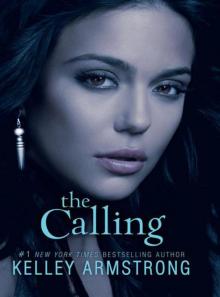 The Calling
The Calling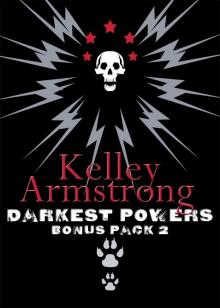 Darkest Powers Bonus Pack
Darkest Powers Bonus Pack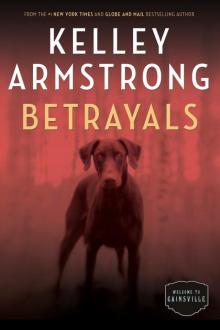 Betrayals
Betrayals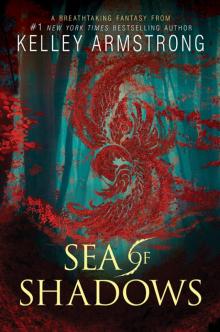 Sea of Shadows
Sea of Shadows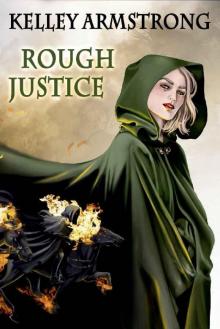 Rough Justice
Rough Justice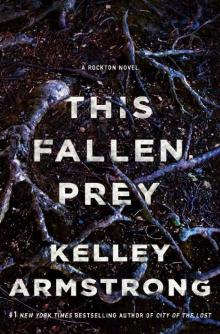 This Fallen Prey
This Fallen Prey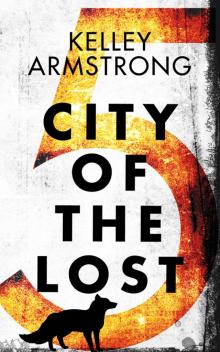 City of the Lost: Part Five
City of the Lost: Part Five Perfect Victim
Perfect Victim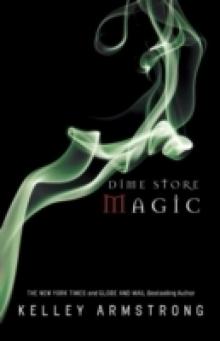 Dime Store Magic
Dime Store Magic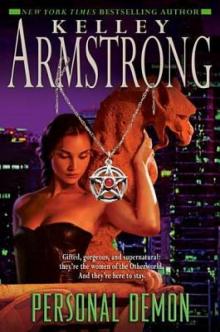 Personal Demon
Personal Demon Haunted
Haunted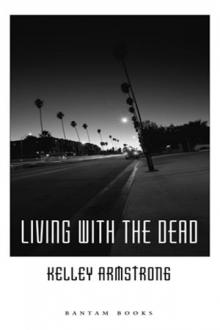 Living With the Dead
Living With the Dead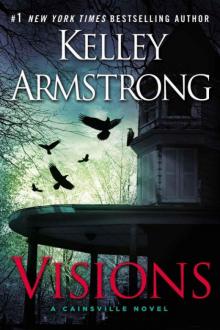 Visions
Visions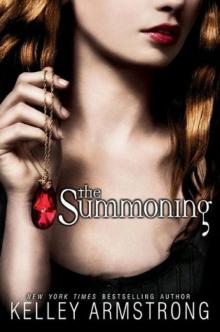 The Summoning
The Summoning Broken
Broken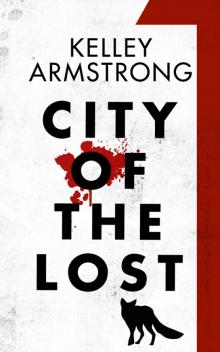 City of the Lost: Part One
City of the Lost: Part One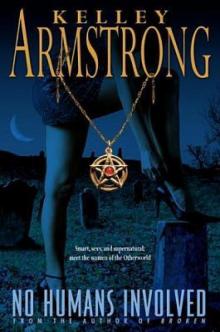 No Humans Involved
No Humans Involved The Awakening
The Awakening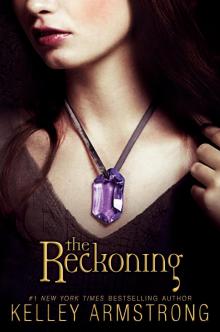 The Reckoning
The Reckoning The Gathering
The Gathering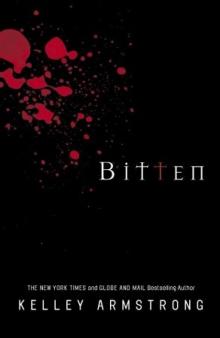 Bitten
Bitten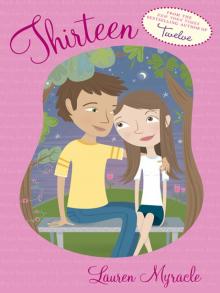 Thirteen
Thirteen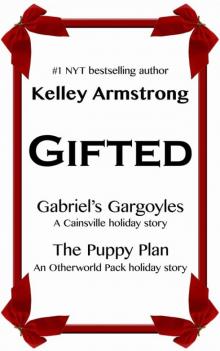 Gifted
Gifted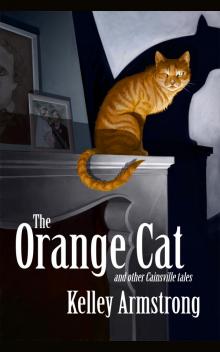 The Orange Cat and Other Cainsville Tales
The Orange Cat and Other Cainsville Tales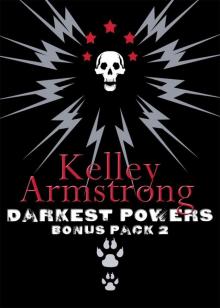 Darkest Powers Bonus Pack 2
Darkest Powers Bonus Pack 2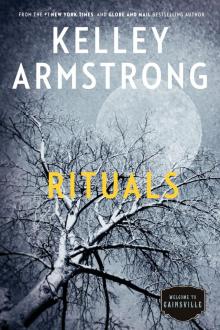 Rituals
Rituals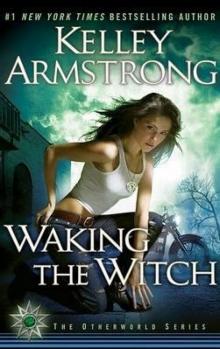 Waking the Witch
Waking the Witch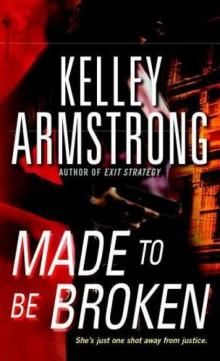 Made to Be Broken
Made to Be Broken Lost Souls
Lost Souls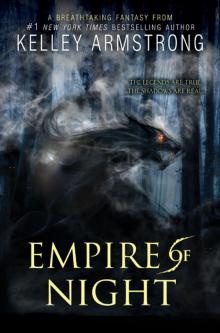 Empire of Night
Empire of Night Wild Justice
Wild Justice Double Play
Double Play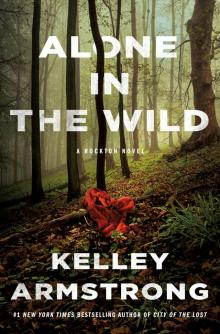 Alone in the Wild
Alone in the Wild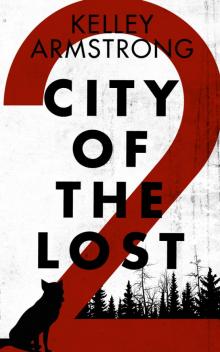 City of the Lost: Part Two
City of the Lost: Part Two A Stranger in Town
A Stranger in Town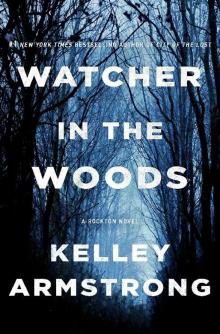 Watcher in the Woods: A Rockton Novel
Watcher in the Woods: A Rockton Novel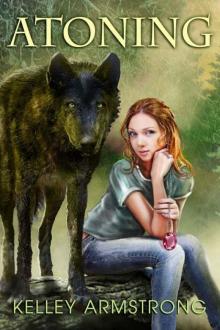 Atoning
Atoning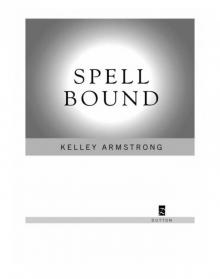 Spellbound
Spellbound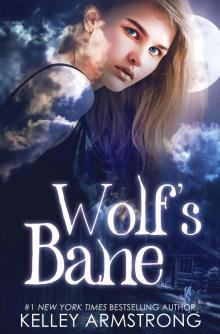 Wolf's Bane
Wolf's Bane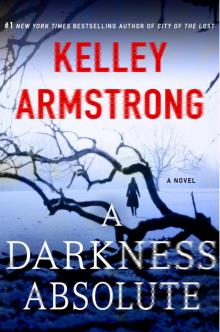 A Darkness Absolute
A Darkness Absolute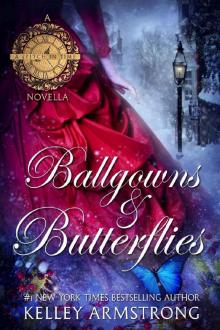 Ballgowns & Butterflies: A Stitch in Time Holiday Novella
Ballgowns & Butterflies: A Stitch in Time Holiday Novella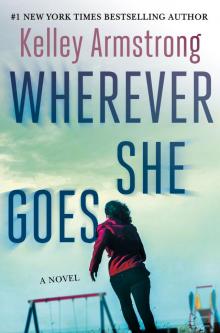 Wherever She Goes
Wherever She Goes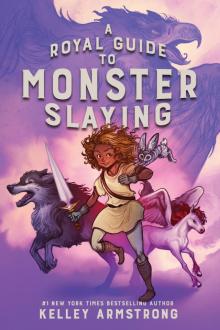 A Royal Guide to Monster Slaying
A Royal Guide to Monster Slaying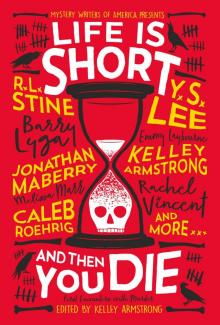 Life Is Short and Then You Die
Life Is Short and Then You Die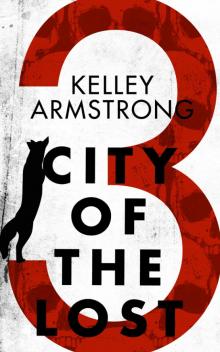 City of the Lost: Part Three
City of the Lost: Part Three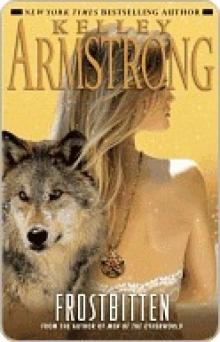 Frostbitten
Frostbitten A Stitch in Time
A Stitch in Time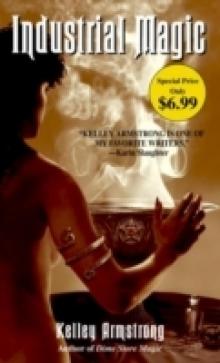 Industrial Magic
Industrial Magic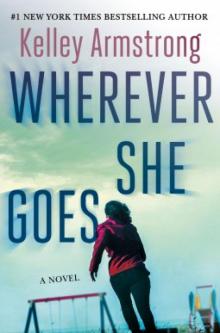 Wherever She Goes (ARC)
Wherever She Goes (ARC)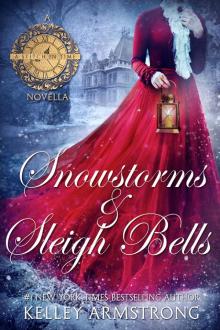 Snowstorms & Sleigh Bells: A Stitch in Time holiday novella
Snowstorms & Sleigh Bells: A Stitch in Time holiday novella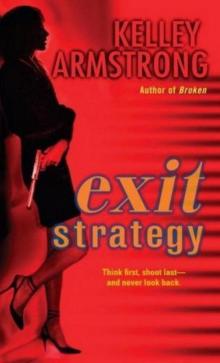 Exit Strategy
Exit Strategy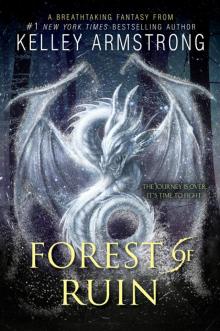 Forest of Ruin
Forest of Ruin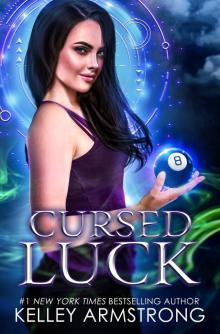 Cursed Luck, Book 1
Cursed Luck, Book 1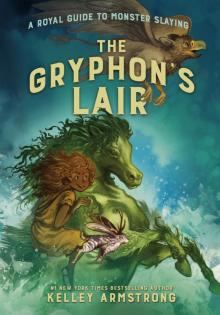 The Gryphon's Lair
The Gryphon's Lair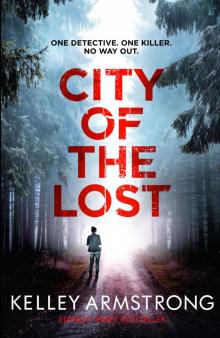 City of the Lost
City of the Lost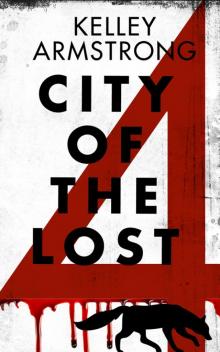 City of the Lost: Part Four
City of the Lost: Part Four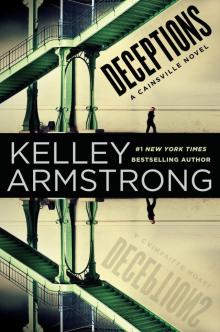 Deceptions
Deceptions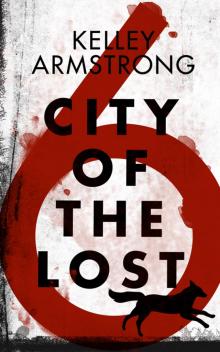 City of the Lost: Part Six
City of the Lost: Part Six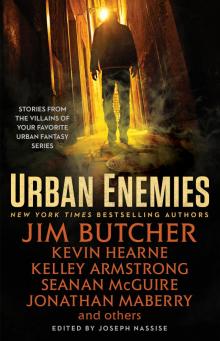 Urban Enemies
Urban Enemies Stolen
Stolen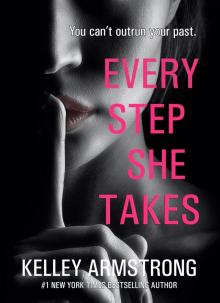 Every Step She Takes
Every Step She Takes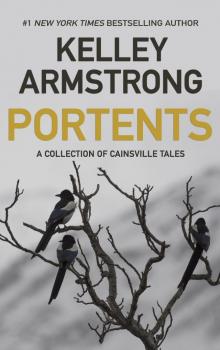 Portents
Portents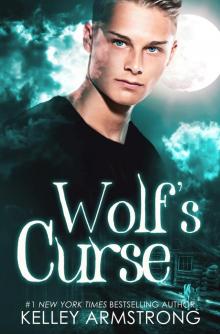 Wolf's Curse
Wolf's Curse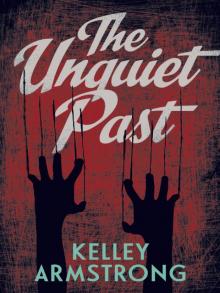 The Unquiet past
The Unquiet past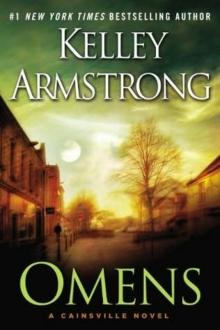 Omens ct-1
Omens ct-1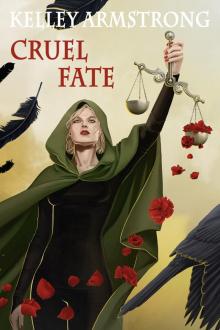 Cruel Fate
Cruel Fate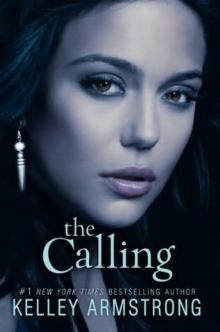 The Calling dr-2
The Calling dr-2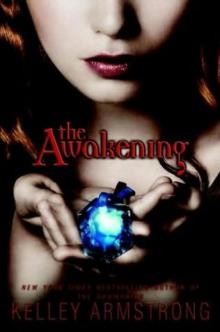 The Awakening dp-2
The Awakening dp-2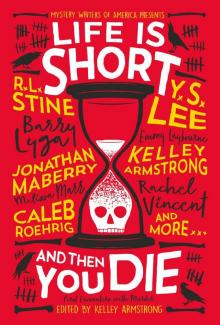 Life Is Short and Then You Die_First Encounters With Murder From Mystery Writers of America
Life Is Short and Then You Die_First Encounters With Murder From Mystery Writers of America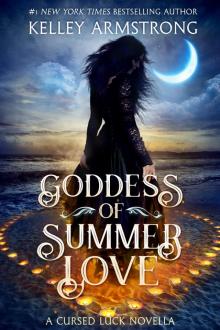 Goddess of Summer Love: a Cursed Luck novella
Goddess of Summer Love: a Cursed Luck novella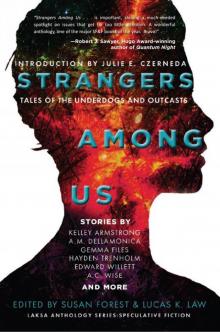 Strangers Among Us
Strangers Among Us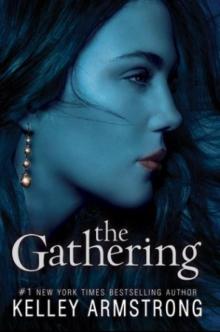 The Gathering dr-1
The Gathering dr-1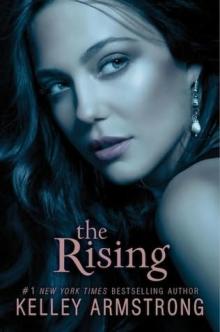 The Rising dr-3
The Rising dr-3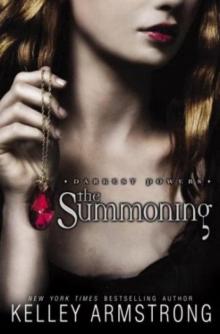 The Summoning dp-1
The Summoning dp-1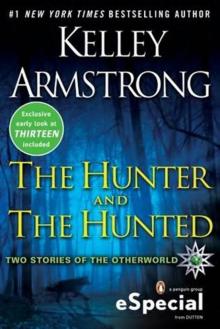 The Hunter And The Hunted
The Hunter And The Hunted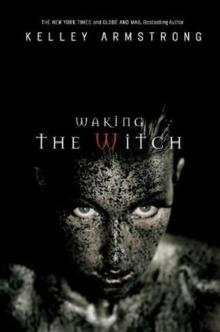 Waking the Witch woto-11
Waking the Witch woto-11